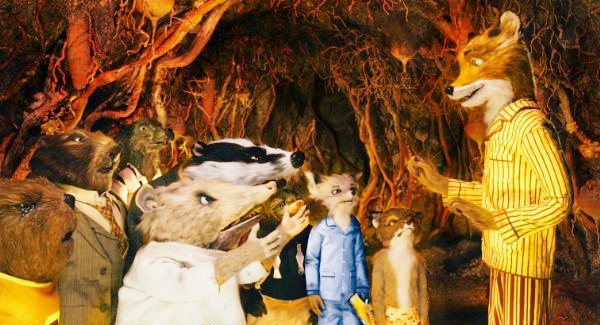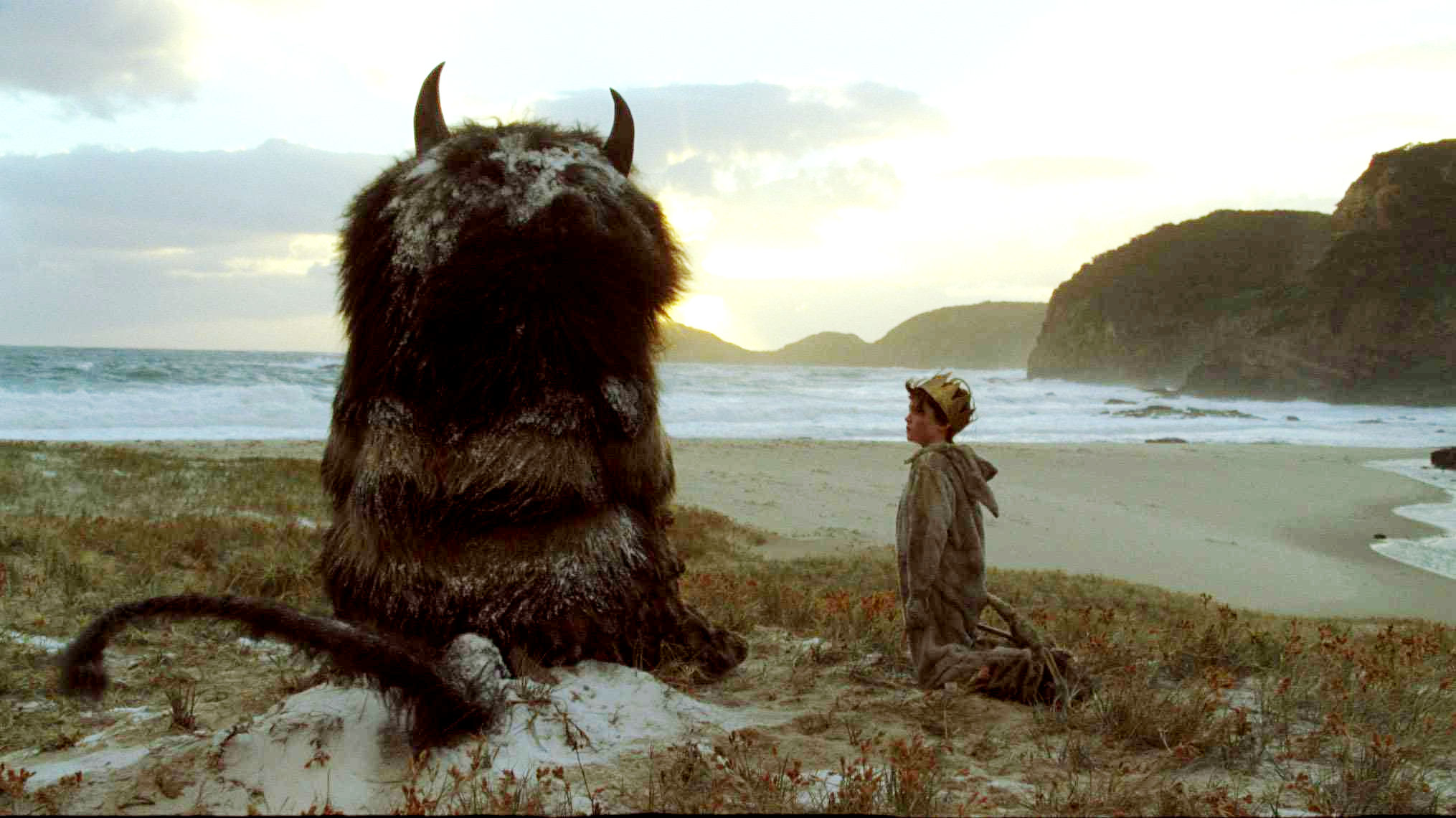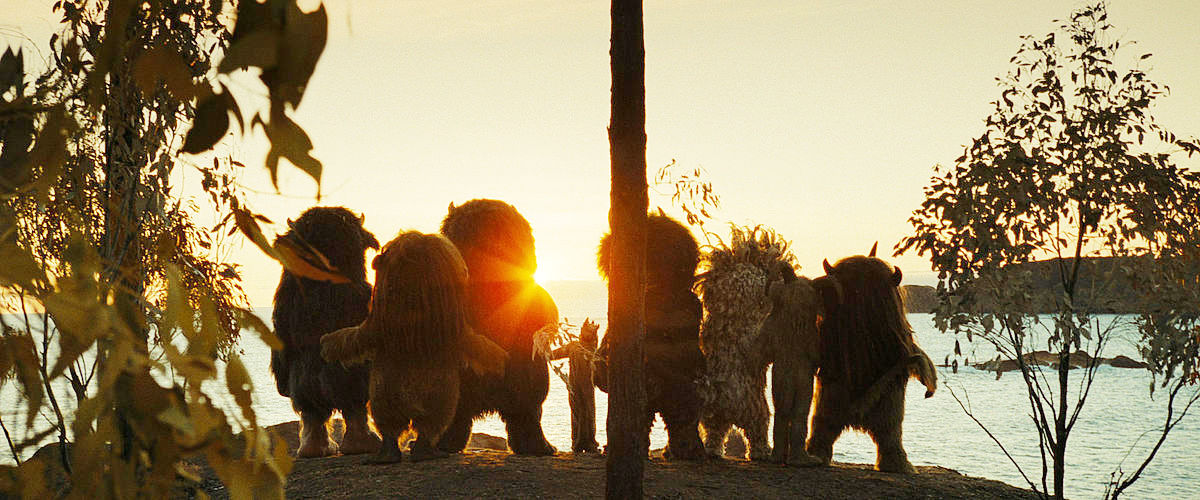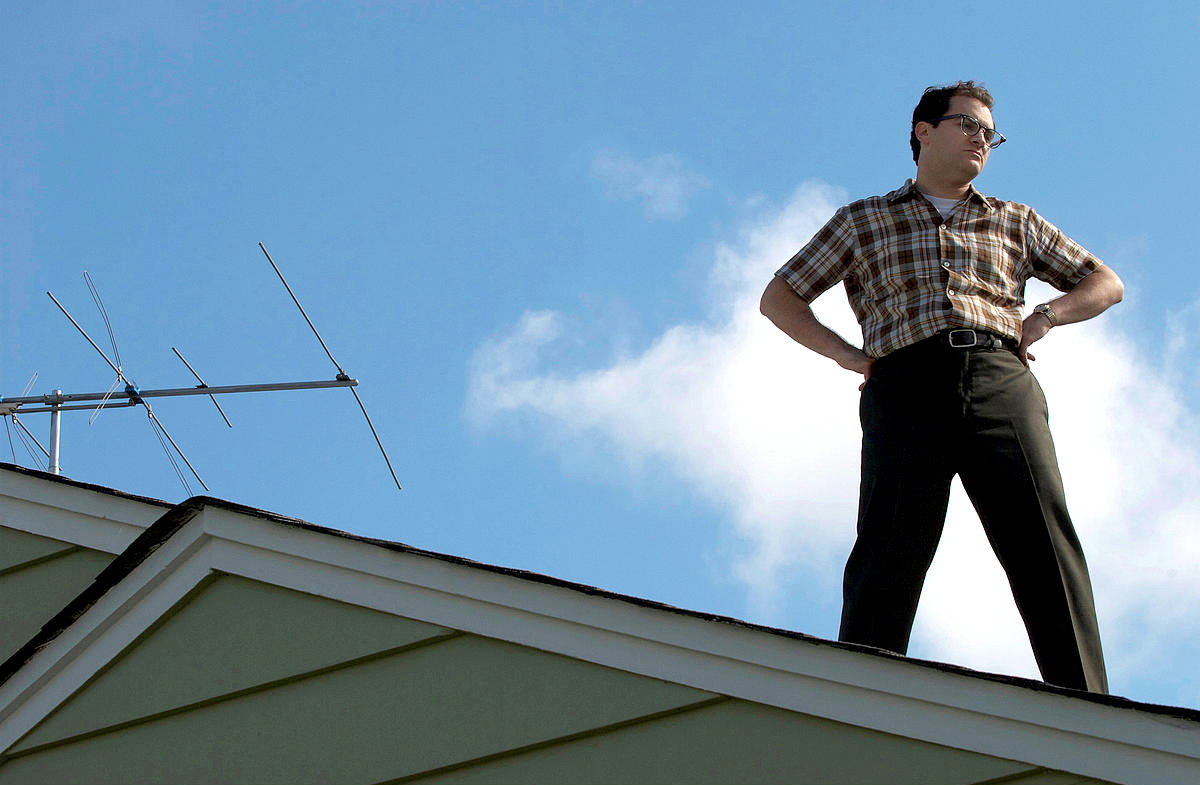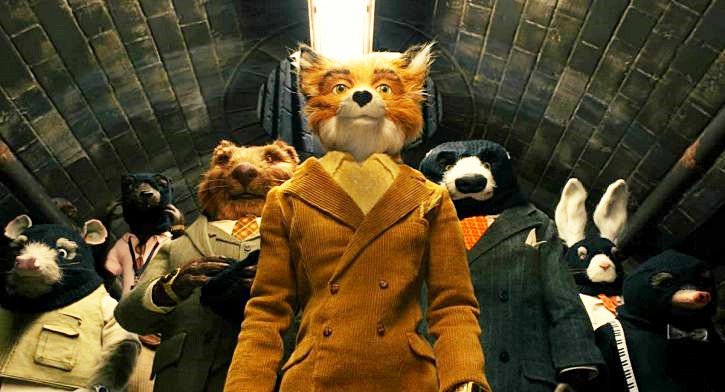
Just so you’re warned, the usual and persistent Wes Andersonisms are on full display here — the bric-a-brac, dollhouse fustiness of the shots, the extended (animal) family, the soundtrack of classic-pop standards, the Rushmore-like whining about identity and acceptance. (We even have Jason Schwartzman, Bill Murray, and another train set.) Yet, all of this seems so much more palatable when focused on a dapper Vulpes vulpes and his coterie of animal companions. The bad habits and forced idiosyncrasy I found irritating in, say, The Life Aquatic, somehow go down much more smoothly when presented as the normal day-to-day behavior of stick-like animals. Go figure.
As you might expect, The Fantastic Mr. Fox begins with a Roald Dahl nursery rhyme (“Boggus, Bunce, and Bean, one short, one fat, one lean“), followed by the introduction of our eponymous beast (Clooney) — He’s dressed to the nines and looking to impress his sweetie (Meryl Streep) with a courtly stroll and a daring raid on a henhouse. But the raid goes awry (or, if you prefer the animal vernacular, gets all cussed up), which is just as well since Ms. Fox turns out to be in a family way, and Mr. Fox should probably settle down and find a safer line of work if he’s gonna live long enough to see the kits grow up.
Many fox-years later, Fox now has a teenage son named Ash (Schwartzman) and a steady and well-paying job working as a newspaper columnist. (Hey, it’s a fantasy — suspend your disbelief.) But the old wild animal urges are still brewing in Mr. Fox…or is it just a mid-life crisis? In any case, Fox up and buys a tree, and — with his bashful new ‘possum super Kylie (Wally Wolodarsky) and his inordinately talented nephew Kristofferson (Eric Anderson) as accomplices — he surreptitiously returns to a life of henhouse crime. This is much to the consternation of the local robber barons, Boggus, Bunce, and particularly Bean (Michael Gambon), the brains of the operations, who decide to take drastic action against their thieving new neighbor. It’s all fun and games until somebody loses a tail…
The central plotline here basically follows the Roald Dahl book, which I had dim childhood memories of going in and which came roaring back as the story unfolded (the shot-off tail, for example.) But, as with Where the Wild Things Are, there needed to be more here to make a full-length movie, and so Wes Anderson and co-writer Noah Baumbach (also director of The Squid and the Whale and Margot at the Wedding) went to their wheelhouse: mid-life ennui (Fox feeling old a la Bernard Berkman), family turmoil (Ash hates living in the shadow of his cousin), high school angst (Ash is lousy at whackbat (the local pastime) and his cute lab partner ignores him), etc. etc. And there are times when all of these additions threaten to start dragging everything down — I myself could have done with one or two fewer toasts by our titular hero near the end.
But, unlike Jonze and Eggers with Where the Wild Things Are, Anderson and Baumbach seem to remember that ultimately this is a kid’s story, and that, at the end of the day, The Fantastic Mr. Fox should mostly just be a whimsical tale. So, every time the movie seems like it’s about to drown in interminable Wes-isms, along comes some curliciue crazy-eyes, or a foam-flecked rabid dog, or a cider-swilling rat (Willem DeFoe), or Bean wryly calling in air support. Rather than losing itself in arthouse ambition like WTWTA, The Fantastic Mr. Fox instead takes pleasure in its impeccable stop-motion craftmanship. And, at its best moments, even despite its occasional hipster pretensions, Fox manages to convey the simple but profound pleasures of a timeless fable well told.
